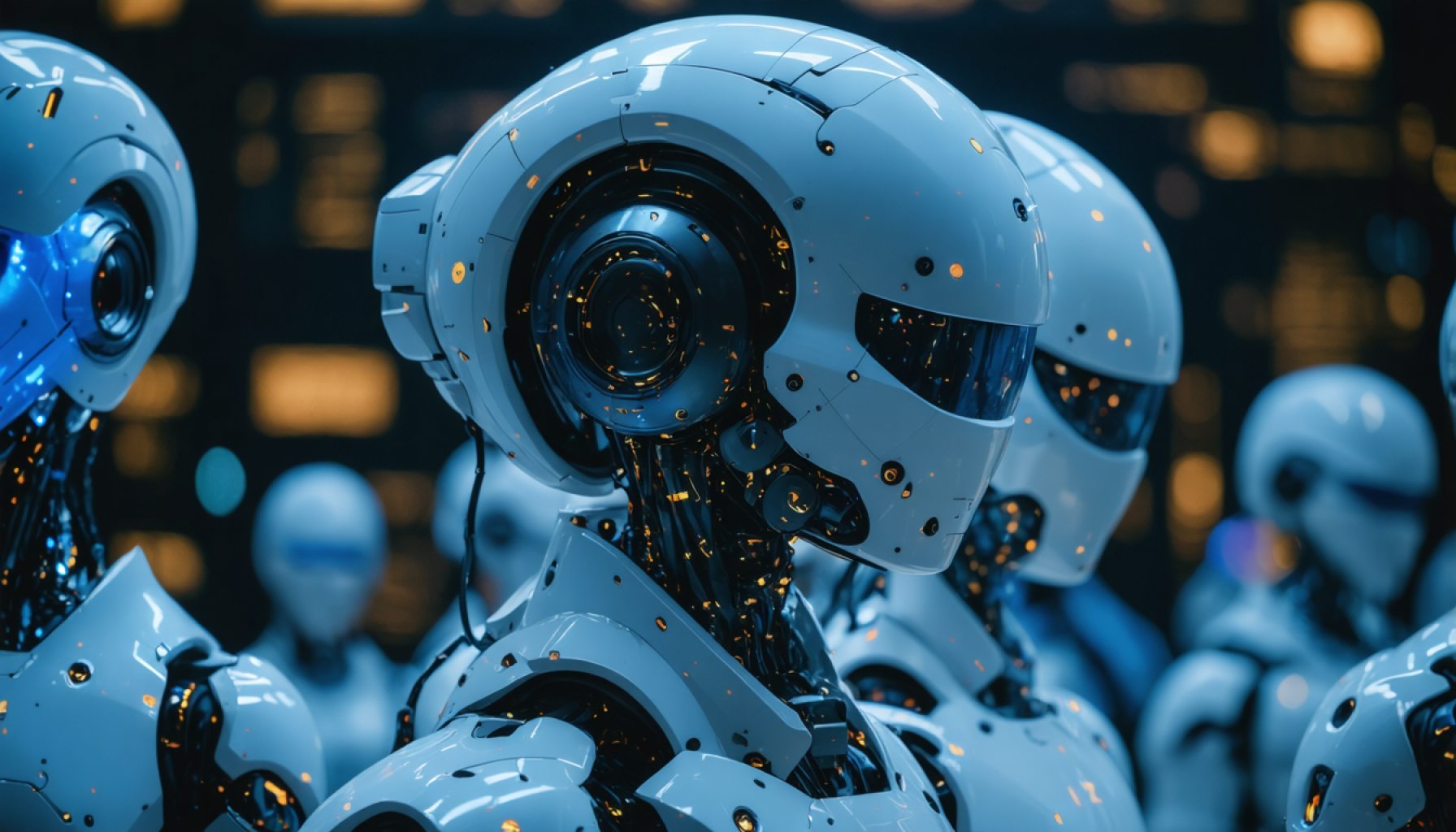- President Trump dismantled prior safeguards on artificial intelligence, igniting debate over America’s AI future.
- Vice President JD Vance promotes AI growth by eliminating regulations that could hinder innovation.
- Elon Musk advances an “AI-first” approach, aiming to automate government tasks through the Department of Government Efficiency.
- AI tools are rapidly being integrated, sparking concerns about privacy, surveillance, and democratic erosion.
- A dialogue on April 2 will explore the administration’s AI goals and their implications for democracy and individual rights.
- The discussion emphasizes the importance of balancing AI’s power with transparency and public welfare.
- The ongoing challenge is to innovate responsibly while protecting democratic ideals.
President Trump, stepping into his first day of leadership, swiftly dismantled the Biden administration’s safeguards on artificial intelligence. This move, which unfolded like a scene from a science fiction drama, set the stage for a lively debate on America’s AI future. Vice President JD Vance, in a grand announcement at the AI summit, championed an audacious vision: to foster an environment ripe for AI growth by stripping away “excessive regulation” that might stifle innovation.
Meanwhile, Elon Musk, a figure synonymous with tech innovation, is doubling down on his commitment to an “AI-first” approach in governance. Through the uniquely named Department of Government Efficiency, Musk seeks to push boundaries, automating tasks within government agencies as a testament to AI’s transformative potential.
Amidst the rapid rollout of AI tools — from intuitive chatbots in public service to autonomous systems in defense — an uneasy question lingers: Are these changes truly in the public’s best interest? The drive to integrate AI so deeply into the fabric of federal operations has sparked a complex web of concerns. From privacy issues to potential overreach in surveillance, and from the erosion of democratic processes to the prioritization of technological advancement over human judgment, the stakes have never been higher.
The anxiety intensifies with tech billionaires at the helm, wielding significant influence in shaping national policy. Can we, the citizens of a democratic society, trust this elite group to uphold the values we hold dear? The juxtaposition of rapid technological advancement against the need for careful governance oversight has never seemed more pronounced.
In light of these developments, a crucial dialogue emerges. On April 2, join a vibrant discussion with seasoned technology journalists, former government AI leaders, and Brennan Center experts. They will untangle the complexities of the current administration’s AI ambitions, striving to shed light on the broader implications for democracy and individual rights. This conversation will delve into the potential for AI to redefine governmental operations and the essential safeguards necessary to ensure these advancements protect, rather than compromise, our democratic ideals.
As these pivotal discussions unfold, the core message resonates: the challenge lies not just in harnessing AI’s extraordinary power, but in doing so with a commitment to transparency, equity, and the public good. As the narrative continues to evolve, the need to balance innovation with responsibility remains a pressing imperative for the future of governance.
Can AI Innovation and Democracy Coexist? Exploring the Future of AI in Government
Introduction
The recent shift in AI policy under President Trump’s leadership has sparked a substantial debate about the role of artificial intelligence in government. As Trump dismantles the Biden administration’s AI regulations, questions arise about balancing innovation with democratic safeguards. This landscape has only become more intricate with Vice President JD Vance and tech leader Elon Musk advocating for an unregulated AI environment.
The Potential and Pitfalls of AI in Government
Innovations and Real-World Use Cases
1. Intuitive AI Chatbots: Government agencies are adopting AI chatbots to streamline public services, promising efficiency and timely responses.
2. Autonomous Systems in Defense: AI-enabled systems could transform military operations, enhancing precision and reducing human error.
3. Automating Bureaucratic Processes: Musk’s initiative within the Department of Government Efficiency aims to replace routine tasks, potentially cutting costs and improving productivity.
Controversies and Limitations
1. Privacy Concerns: The expanded use of AI raises serious issues regarding data privacy and the potential for misuse in government surveillance.
2. Democratic Erosion: Critics argue that rapid AI implementation without sufficient oversight could undermine democratic processes, leading to decisions made by algorithms rather than elected officials.
3. Technological Overreach vs. Human Judgment: There’s a risk that reliance on AI could prioritize technological solutions over nuanced human decision-making.
Insights and Predictions
1. Market Forecast and Industry Trends: The AI market is projected to grow exponentially, with governmental AI spending increasing as agencies seek to optimize through technology (Source: McKinsey).
2. Security and Sustainability: Ensuring AI systems are both secure and sustainable is paramount. Cybersecurity protections and minimizing environmental impact from AI computation are critical considerations.
Pressing Reader Questions
– Can AI be trusted to uphold democratic values? Without robust safeguards, there’s skepticism about whether AI can align with public ethics and transparency.
– What are the benefits and risks of automating government tasks? While efficiency gains are evident, risks include loss of jobs and over-reliance on technology for critical decisions.
Actionable Recommendations
1. Implement Stronger Regulations: Balance is needed between encouraging innovation and enforcing regulations that protect privacy and rights.
2. Promote AI Literacy: Public understanding of AI, how it works, and its impacts is crucial in fostering informed discussions and decisions.
3. Develop Ethical Guidelines: Establish frameworks to guide AI development and deployment, ensuring alignment with democratic principles.
Conclusion
As AI becomes an integral part of government operations, ongoing dialogue is essential to navigate its complex implications. The focus must remain on harnessing AI’s potential while safeguarding democracy and individual freedoms. By prioritizing ethical considerations and public engagement, society can ensure AI serves the greater good.
For more discussion on AI’s impact on governance and democracy, consider joining events or reading resources from organizations like the Brennan Center for Justice.
